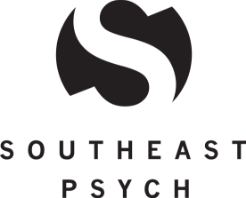Do you wake up day after day feeling drained, unfocused, or emotionally heavy, like your brain just won’t turn on? That persistent sense of mental cloudiness (aka brain fog), lack of motivation, or emotional flatness may be the fog of depression.
Depression affects not just your mood, but your cognitive function, energy, focus, and ability to be present in your daily life. It can feel like you’re walking through mud—physically, emotionally, and mentally. But with the right support, the fog of depression can begin to lift. A mental health therapist can help you feel clearer, more connected, and more like yourself again.
What Is Brain Fog—and How Is It Linked to Depression?
“Brain fog” isn’t a clinical diagnosis, but it’s a very real experience. People describe it as trouble focusing, slowed thinking, forgetfulness, or even difficulty finding the right words. These symptoms can be characterized as cognitive impairment, and they are highly associated with depressive symptoms.
Research shows that depression can disrupt a wide range of cognitive processes, including:
- memory
- concentration
- processing speed
- decision-making
These difficulties not only contribute to brain fog, but also bring about feelings of frustration, shame, and isolation. It becomes a loop that’s hard to escape—especially if you’re trying to manage on your own.
How Working with a Therapist Can Help
When you’re struggling with depression, it’s easy to feel stuck. Fortunately, mental healththerapists are uniquely trained to help you untangle the thoughts, behaviors, biological and situational factors that contribute to that stuck feeling.
One proven treatment is Cognitive Behavioral Therapy (CBT)—an evidence-based approach that helps you identify unhelpful thought patterns and build healthier coping strategies. CBT also supports improvement in cognitive functioning by helping you re-engage with daily tasks and routines that support mental clarity and resilience.
Using a CBT approach, a therapist might also help with:
- Setting small, achievable goals
- Exploring underlying emotional triggers
- Developing tools to manage low mood or energy levels
- Reintroducing joy, structure, and purpose into your week
While there are proven approaches to treatment, therapy isn’t one-size-fits-all. Treatment plans are customized to your needs and should evolve as you grow. Some people benefit from short-term therapy focused on immediate relief, while others decide to go beyond immediate relief and participate in a more long-term model of therapy.
Other Ways to Support Mental Clarity
Therapy is powerful, but healing is also supported by daily practices that strengthen the body and mind. Here are a few ways to supplement therapy and begin to lift the fog of depression:
1. Prioritize Movement
Even light physical activity—a walk, gentle stretching, or biking—can boost endorphins and increase mental clarity.
2. Monitor Nutrition
Some studies show that foods rich in omega-3 fatty acids (like salmon, walnuts, or flaxseed) may support brain function and emotional health. Minimizing consumption of sugar, carbohydrates, and alcohol can also have a big impact on brain functioning and quality of sleep.
3. Improve Sleep Hygiene
When it comes to brain fog and depressive symptoms, too much sleep can work against you, but quality sleep is critical. A therapist can help you develop sleep hygiene strategies to get better rest and reduce fatigue.
4. Practice Mindfulness
Grounding techniques or short mindfulness exercises can calm racing thoughts, reduce the impact of stress, and help you engage in the present.
It’s Not Just You—And It’s Not Forever
Depression can make the future feel bleak or unattainable, but those feelings aren’t permanent. Those feelings are symptoms—and symptoms can be treated. You’re not lazy. You’re not broken. You’re doing your best with a very real mental health condition that deserves compassionate care.
With the right therapist, support system, and treatment plan, many people see lasting improvement in both their mood and their thinking. They begin to reconnect with who they are behind the fog.
Taking the First Step
You don’t have to wait until things feel “bad enough.” If your days feel dimmer, your motivation is low, or you just don’t feel like yourself, that’s enough of a reason to reach out.
If you’re ready to start working toward clarity and emotional balance, contact Southeast Psych today. Our experienced therapists in Charlotte are here to walk beside you—offering skilled, person-centered care that meets you right where you are.
Because life isn’t meant to be lived in a haze. And with support, it doesn’t have to be.
